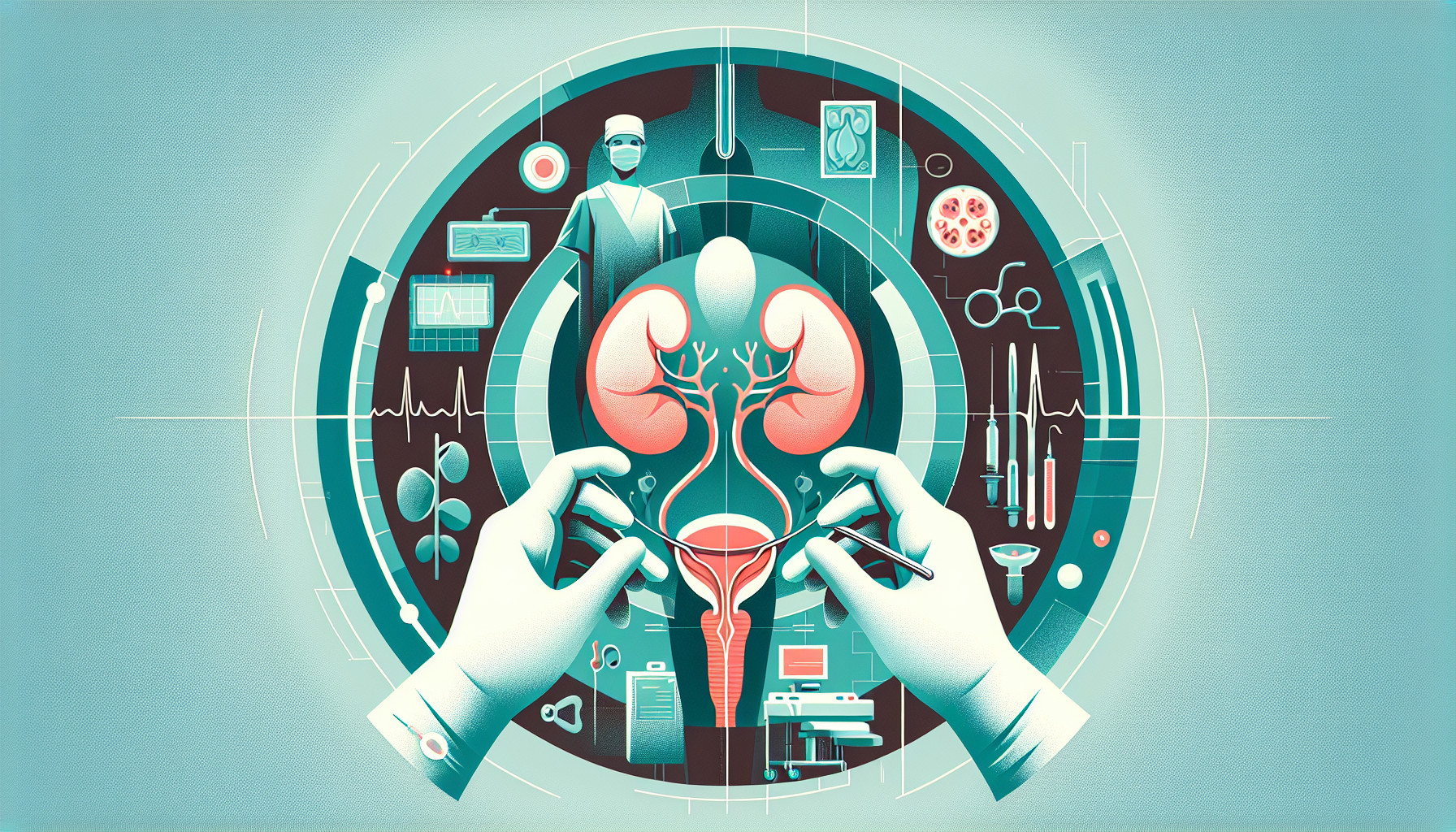Our Summary
This research paper looks at a condition called Enterovesical fistula (EVF), which is an unusual connection between the intestine and the bladder. The study aimed to find out if it’s always necessary to close up the hole in the bladder wall during surgery.
The researchers studied 59 patients who all had surgery for EVF. After removing the affected part of the bowel, a blue dye was introduced to the bladder to see if any was leaking out. If it was, then the bladder was stitched up.
The most common type of fistula was one that involved the colon and the bladder. This was found in over half the cases. Two-thirds of the patients had a disease of the small pouches in the gut as the underlying problem. There was no link found between stitching up the bladder and complications during or after surgery.
Reoccurrence of EVF was seen in one patient who had bladder suturing and in two patients who didn’t have suturing. This suggests that it’s not always necessary to stitch up the bladder if no leak is found during surgery.
However, the researchers note that the study has some limitations, including that it was looking back at past patients and there were not that many of them. Therefore, they recommend a more controlled trial to be sure of the findings.
FAQs
- What is an Enterovesical fistula (EVF)?
- Is it necessary to always close the defect in the bladder wall during EVF surgery?
- What is the most common type of intestinal fistula involving the urinary bladder?
Doctor’s Tip
A helpful tip a doctor might tell a patient about bladder surgery is to follow post-operative care instructions carefully, including proper wound care, activity restrictions, and medication management. It is important to attend follow-up appointments as scheduled to monitor healing and address any concerns promptly. Additionally, maintaining good hydration and practicing good bladder habits can help promote recovery and prevent complications.
Suitable For
Patients with benign enterovesical fistula (EVF) are typically recommended bladder surgery. This includes patients with colovesical fistula, diverticular disease as the underlying pathology, and those with urinary bladder leakage demonstrated intraoperatively. It is important to note that closure of the bladder defect may not always be necessary, as indicated by the findings of this study. Further research, such as a randomized controlled trial, is recommended to definitively answer the question of whether bladder suturing is necessary in all cases of EVF surgery.
Timeline
Before bladder surgery:
- Patient may experience symptoms such as urinary tract infections, frequent urination, pain during urination, and urinary incontinence.
- Patient undergoes diagnostic tests such as cystoscopy, CT scan, and urine analysis to determine the cause of their symptoms.
- Surgical consultation is scheduled to discuss treatment options and risks involved.
After bladder surgery:
- Patient undergoes the one-stage surgical procedure to repair the enterovesical fistula.
- Intraoperatively, methylene blue is introduced into the bladder to check for leakage.
- Bladder defect is only sutured if urinary bladder leakage is present.
- Postoperatively, patients are monitored for complications such as infection, bleeding, or recurrence of the fistula.
- Follow-up appointments are scheduled to assess healing and address any concerns or complications.
What to Ask Your Doctor
Some questions a patient should ask their doctor about bladder surgery for enterovesical fistula include:
- Is closure of the bladder defect always necessary during surgery for enterovesical fistula?
- What are the potential risks and benefits of suturing the bladder during surgery?
- How will you determine if a bladder leak is present during the surgery?
- What is the likelihood of recurrence of enterovesical fistula if the bladder defect is not sutured?
- Are there alternative treatments or surgical approaches that do not involve suturing the bladder?
- What is the recovery process like for bladder surgery for enterovesical fistula?
- How long will it take to fully recover and return to normal activities after the surgery?
- What are the potential complications or side effects of not suturing the bladder during surgery?
- How will you monitor for any potential complications or recurrence after the surgery?
- Are there any lifestyle changes or precautions I should take after bladder surgery for enterovesical fistula?
Reference
Authors: Dziki Ł, Włodarczyk M, Sobolewska-Włodarczyk A, Mik M, Trzciński R, Hill AG, Dziki A. Journal: BMC Surg. 2019 Jul 8;19(1):85. doi: 10.1186/s12893-019-0542-4. PMID: 31286905
